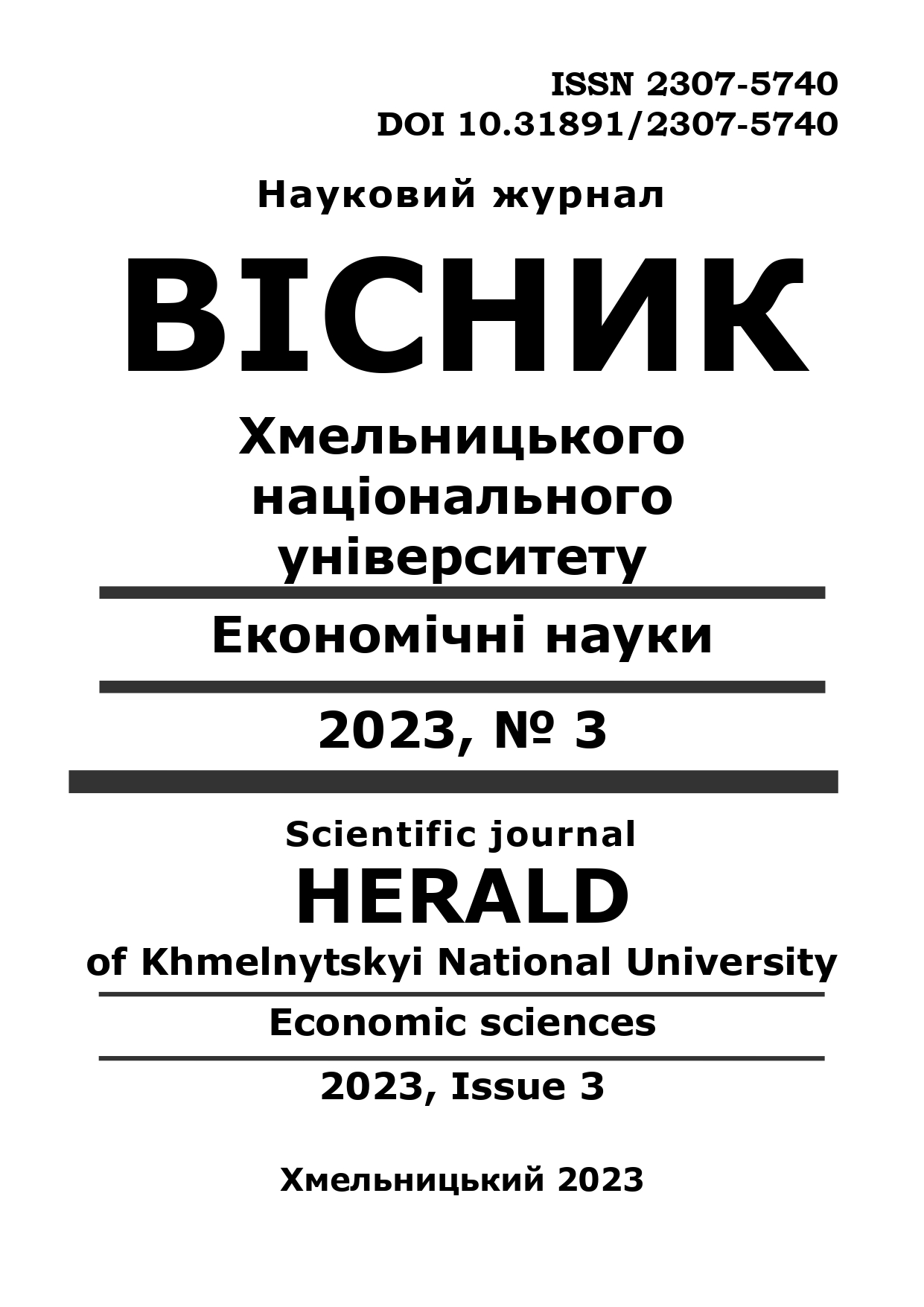DETINIZATION OF THE FUNCTIONING OF THE PRIORITY INDUSTRIES OF THE NATIONAL ECONOMY IN THE CONTEXT OF ENSURING ITS FINANCIAL AND ECONOMIC SECURITY
DOI:
https://doi.org/10.31891/2307-5740-2023-318-3-57Keywords:
economic security, national economy, recovery, economic sectorsAbstract
The modern realities of the functioning of enterprises in various branches of the national economy testify to the presence of a significant number of negative impact factors that significantly affect not only individual business entities, but also the economic security of the state as a whole. Such a situation requires a thorough study of the sources of influence and means of its minimization through the use of modern management tools, which allow to ensure a sufficient level of financial and economic security at the macro, meso, and micro levels.
The article identifies the priority sectors of the domestic economy from the point of view of post-war recovery. It is precisely such industries as: military-tech, metallurgy, mining industry and engineering, agriculture, food industry, and the IT industry that are able to provide conditions for the growth of GDP and stabilization of the financial and economic situation in the country in the future. This is a guarantee of financial and economic security at the national level and should be a reference point for making appropriate management decisions by the top management. It has been proven that metallurgy, mining industry and mechanical engineering are traditionally under the influence of financial and industrial groups, and financial flows within such spheres are quite strongly dependent on market conditions and the vision of company management regarding the legal reflection of the state of affairs. In other areas, the level of business shadowing is also quite high. This is evidenced by the results of the assessment of the impact of the factors restraining industrial production. Even before the war, there was no formation of a positive business environment and rapid growth of investment flows in domestic industries at the national level. It is proven that the financial and economic security of the state depends, first of all, on the political will of the top management and compliance with the legislation by all participants of the socio-economic systems, which ultimately leads to the gradual detinization of the functioning of the vast majority of industries and the economy as a whole.


